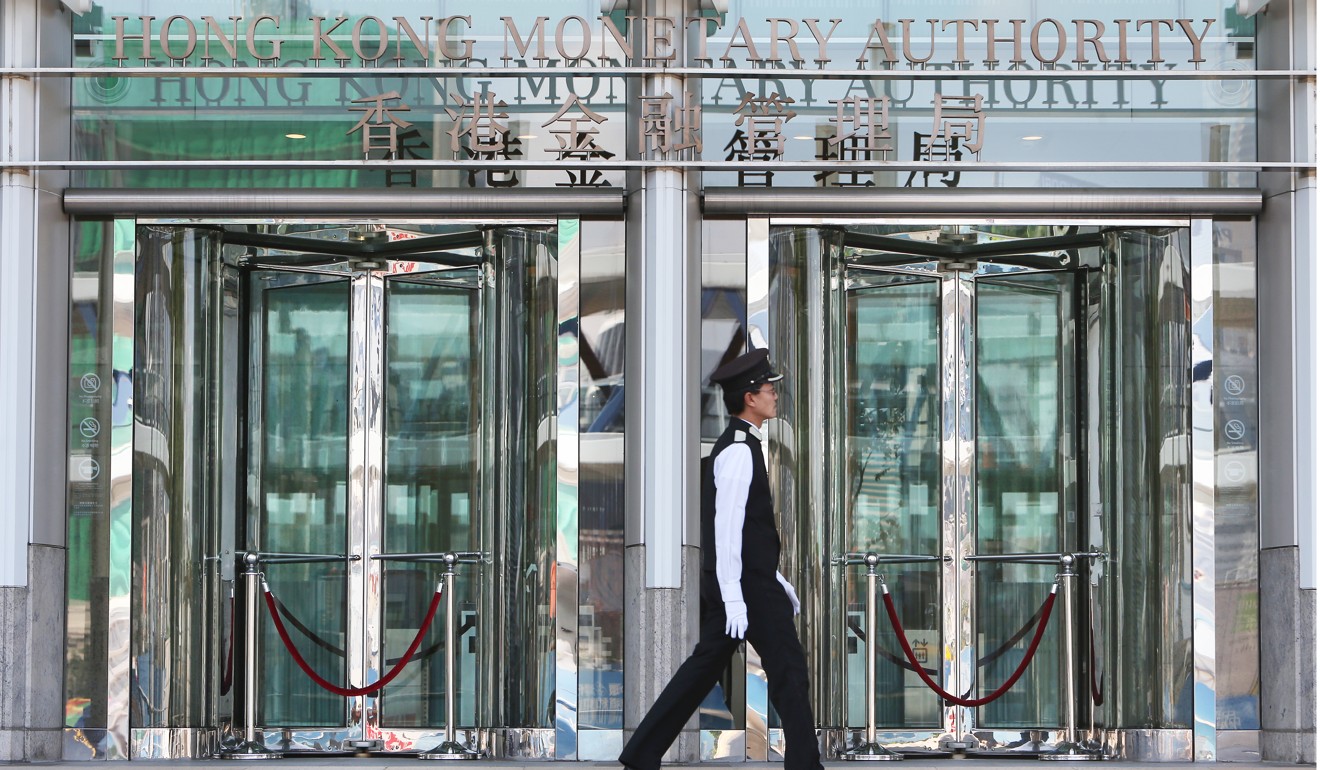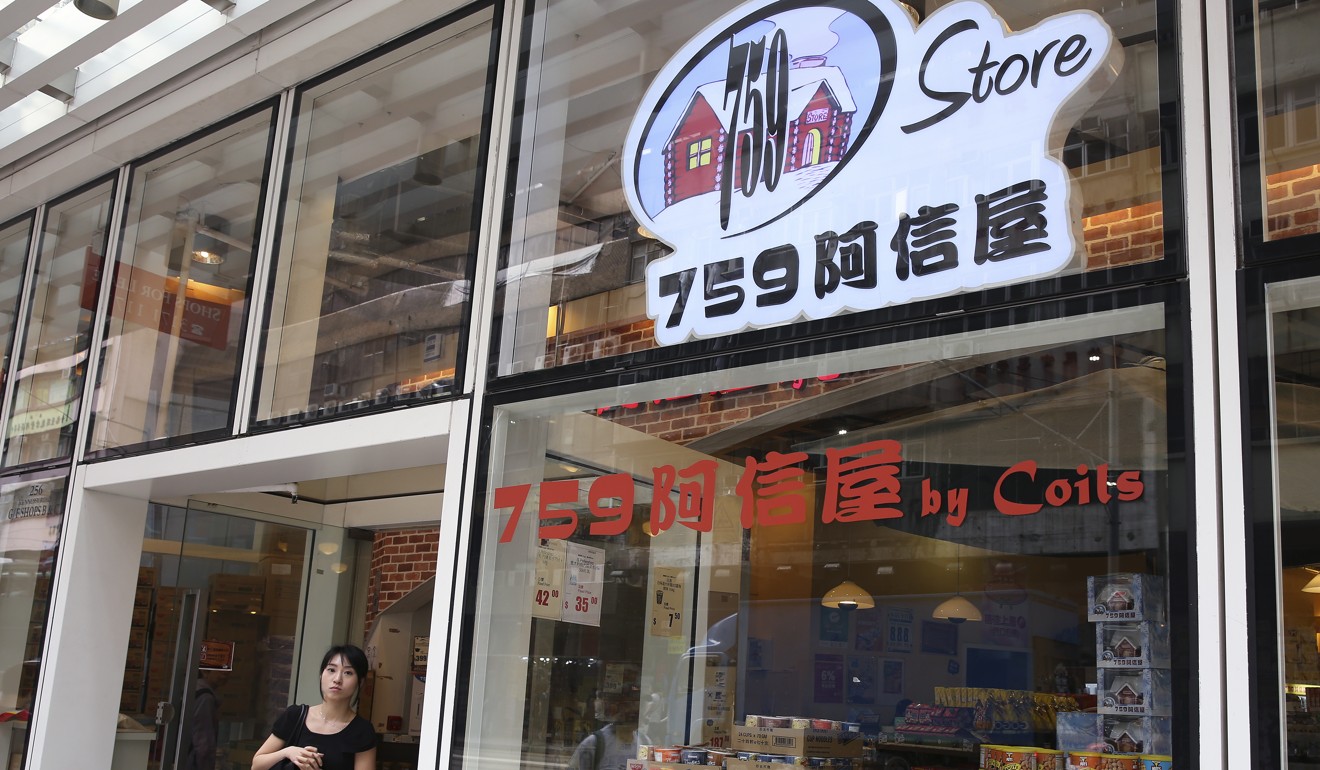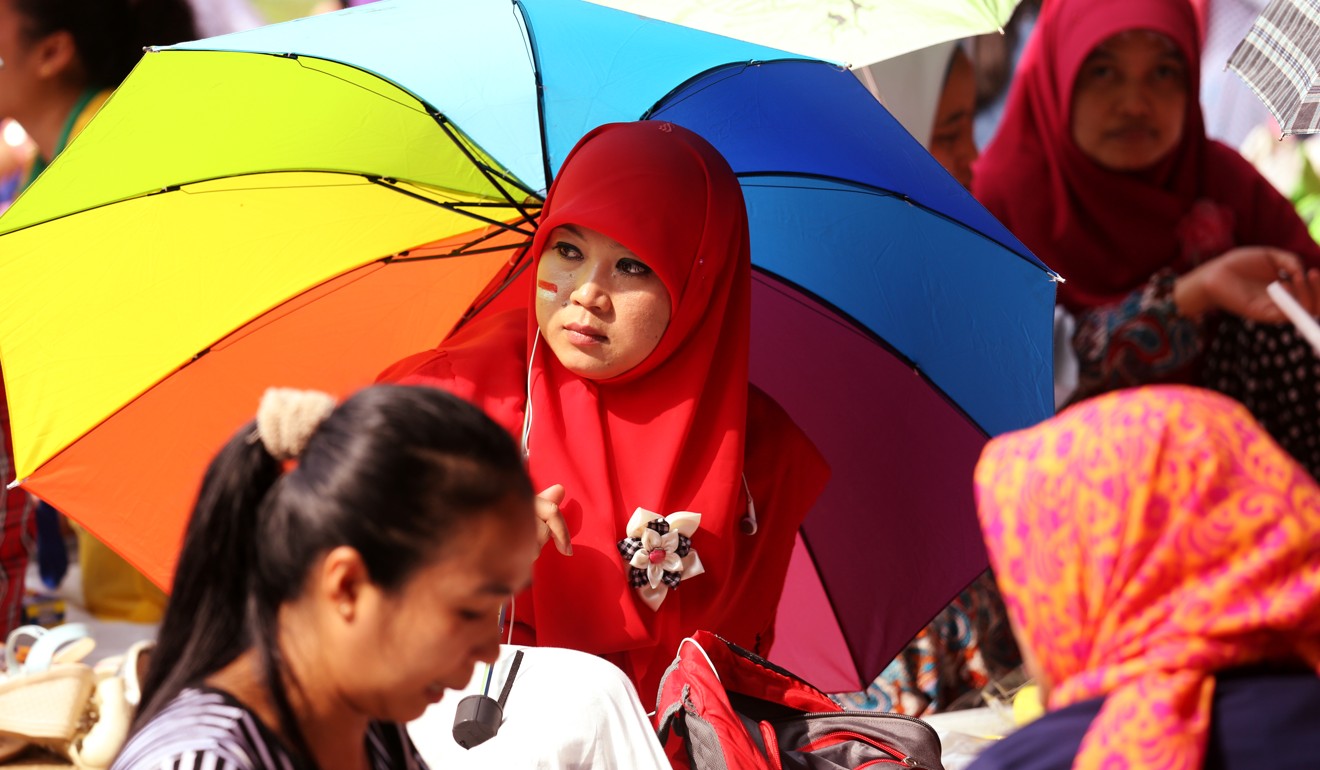
What the weakest Hong Kong dollar in 30 years means for firms, workers and travellers
Pressure on imports, holidaymakers and foreign domestic workers as local currency hits three-decade low
A leading Hong Kong chain store specialising in Japanese snacks and consumer goods has responded to the recent depreciation of the Hong Kong dollar by marking up its products by 3 to 5 per cent.
But other businesses believed the weaker local currency, which hit a three-decade low against the US dollar on Monday, would have little real or long-term impact as the fluctuation was marginal.
A currency peg against the greenback since October 1983 has kept the Hong Kong dollar relatively stable.
But that stability has recently been challenged as investors sell Hong Kong dollars ahead of a meeting later this month of the US Federal Reserve. Traders fear the American central bank will raise US interest rates, thus widening the gap between Hong Kong’s borrowing costs and those stateside.
The Hong Kong dollar fell to a rate of 7.8322 per US dollar on Monday, edging closer to the 7.85 lower limit of a trading band which the city’s de facto central bank, the Hong Kong Monetary Authority, is obliged to maintain.

Businesses which rely on regular imports would be most susceptible to currency fluctuations.
Snack giant 759 Store, which operates more than 220 shops across the city, has made a name by stocking a wide variety of Japanese, and recently, Korean, goods.
Lam Wai-chun, chairman of its mother company, Hong Kong-listed CEC International Holdings, said Japanese and Korean imports made up half of all products on the company’s shelves.
Hong Kong’s dollar weakens to three-decade low, testing city’s resolve to defend currency peg
He said the last time they were hit hard by a currency fluctuation was in early 2016 when a strong Japanese yen ate into profit margins.
A strategy since put in place to minimise the impact of any exchange rate volatility had also backfired.
“After 2016 we tried to reduce the ratio of Japanese imports to about 30 per cent,” Lam said. “But the stores have lost their appeal for our loyal customers, most of whom are drawn to our line-up of Japanese snacks.”

The prices of some recently imported goods had already been marked up by 3 to 5 per cent, he said. His team of analysts would try to hedge against further fluctuations in the Japanese yen by closely monitoring the market.
One group of residents sensitive to a lower Hong Kong dollar would be the more than 300,000 foreign domestic helpers working in the city, who remit part of their wages back home every month.
Cheung Kit-man, chairman of the Hong Kong Employment Agencies Association, said every penny counted for these workers.
Hong Kong’s Exchange Fund has a case to answer in its defence of the dollar’s peg
“Many of their families back home have no savings at all, so this is actually a matter of life and death,” he said.
Some might have to make ends meet by hawking items on Hong Kong’s streets at weekends or even engaging in the sex trade, he added.

However, the fall in the local currency would not have such a drastic effect on all.
American Grocery, a store in Prince Edward offering speciality snacks, toys and other novel items directly imported from the US, said the depreciation was “too marginal” to warrant any action.
“The Hong Kong dollar has only dropped by a few basis points. It may mean an extra HK$1,000 against our monthly revenue of HK$200,000 to HK$300,000,” shopkeeper Jay Lam said.
“To be honest, we are more affected by the prevailing consumer sentiment and how much disposable income Hongkongers have.”
HKMA head Norman Chan vows to defend Hong Kong peg with HK$3.3tn war chest
Those views were shared by Ricky Tse Kam-ting, vice-chairman of the Hong Kong Outbound Tour Operators Association, who dismissed the possibility of price surges for group holidays around Easter.
“Many holidaymakers have already made their reservations and paid deposits, so I don’t see how the depreciation would affect them,” he said.
But he admitted a “currency surcharge” might be levied by some tour operators on long-haul trips priced at HK$30,000 or above.

